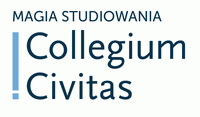Comte gave a powerful impetus to the development of sociology, an impetus which bore fruit in the later decades of the nineteenth century. To say this is certainly not to claim that French sociologists such as Durkheim were devoted disciples of the high priest of positivism. But by insisting on the irreducibility of each of his basic sciences to the particular science of sciences which it presupposed in the hierarchy and by emphasizing the nature of sociology as the scientific study of social phenomena Comte put sociology on the map. To be sure, [its] beginnings can be traced back well beyond Montesquieu, for example, and to Condorcet, not to speak of Saint-Simon, Comte's immediate predecessor. But Comte's clear recognition of sociology as a particular science, with a character of its own, justified Durkheim in regarding him as the father or founder of this science, in spite of the fact that Durkheim did not accept the idea of the three states and criticized Comte's approach to sociology.
Frederick Copleston A History of Philosophy: IX Modern Philosophy (1994). Image Books, New York. p. 140. ISBN 0385129106.

